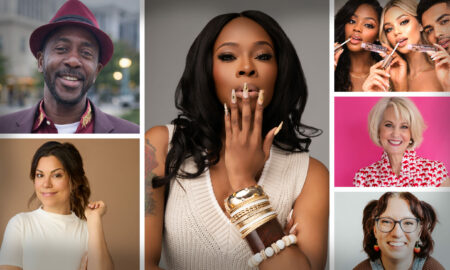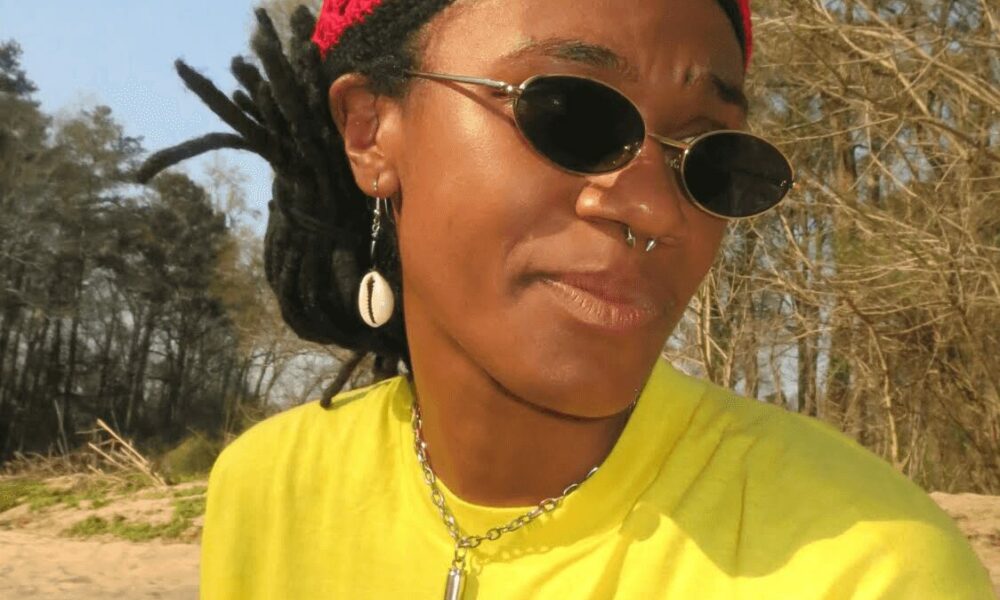

Today we’d like to introduce you to Maia Helvy.
Hi Maia , so excited to have you on the platform. So before we get into questions about your work-life, maybe you can bring our readers up to speed on your story and how you got to where you are today?
I’m a 23-year-old creative from Lawrenceville, GA, just outside of Atlanta. Growing up, I split my time between the suburbs and the city of Atlanta. This unique blend of suburban life and city experiences shaped my perspective and fueled my passion for photography and videography from a young age.
My journey with visual storytelling began with my first iPad, where I spent countless hours making short films on iMovie, recording daily vlogs, and recreating silly trends. This early interest naturally led me to become active in yearbook and newspaper classes during high school, where I could tell stories and capture compelling images of my peers.
When I attended Georgia State University, I knew I wanted to pursue something in the creative field. I found my perfect fit in the Media Entrepreneurship program within the CMII department. This program offered a blend of creative and business education, allowing me to take film classes while learning about the industry’s business side, which has been invaluable.
During my time at GSU, I immersed myself in various activities. I hosted my own radio show at Album 88, got involved with GSUTV, and had the incredible opportunity to study abroad in Ghana, where I worked on a documentary with my class. These experiences, especially in my junior and senior years, pushed me to take filmmaking and directing more seriously.
My first significant project was directing a music video for my close friend, Makenna Lyric. With the support of Makenna and my friend Mia Gant, who edited the project, we created a piece that was showcased at several festivals, including the GSU Student Film Festival, Southern Fried Queer Pride Film Festival, and the Atlanta Film Festival.
Since graduating, I’ve been working at Re:imagine, a film non-profit in Reynoldstown dedicated to empowering Gen Z to tell their own stories and make space in the film industry. I’ve enjoyed teaching an after-school class for K-5th graders and co-directing and acting in a project for Warner Brother’s Discovery about various film career paths.
Recently, I was honored to receive a grant from the Alliance of Media Arts and Culture funded by NBCUniversal, called the Power of Storytelling. I’m using this grant to complete a poetic documentary based in Atlanta, focusing on the journeys of three Black Queer musicians and their reliance on each other for community and friendship.
Looking forward, I’m excited to continue creating and telling impactful stories, leveraging my experiences and skills to contribute meaningfully to the film industry.
Would you say it’s been a smooth road, and if not what are some of the biggest challenges you’ve faced along the way?
While my journey has been incredibly rewarding, it hasn’t always been smooth. One of my initial struggles was committing to sharing my work publicly. Being vulnerable and letting others see the creative side of me felt very personal, especially because my work is closely tied to my identity as a Black Queer non-binary person. Over time, I learned that this aspect of my work is actually the most inspiring and impactful. I’m grateful to have grown up in a supportive environment where my family encouraged both my identity and my creative pursuits.
Many of my family members are educators and creatives passionate about nurturing young minds. My uncle, an art teacher, filmmaker, and photographer, played a pivotal role in encouraging me to tell my story. He constantly supported my work and helped me realize the importance of the stories I wanted to tell, even when I doubted their impact.
Another challenge I faced, which I believe many young creatives encounter, was being taken advantage of by more experienced or older creatives whom I admired and trusted. It was especially disheartening when these individuals shared my background or seemed trustworthy. These experiences taught me valuable lessons about trusting my intuition and being cautious about whom I collaborate with.
Despite these challenges, I’m extremely grateful for finding a supportive community. This safe space has allowed me to create freely and feel truly uplifted, making my experience in Atlanta much smoother and more fulfilling.
Thanks for sharing that. So, maybe next you can tell us a bit more about your work?
As an advocate for diversity and inclusivity, I am deeply committed to leveraging storytelling as a powerful medium to illuminate the experiences of marginalized communities. My work specializes in highlighting Black Queer artists and reclaiming the rich heritage and identities of Queer and BIPOC communities. I primarily shoot on film, using older cameras like Super 8, JVC, and Panasonic video cameras. This choice is driven by my desire to evoke a distinctive visual aesthetic that resonates with the narratives I seek to convey. By embracing these vintage formats, I aim to create a unique cinematic experience that not only captivates audiences but also pays homage to the past. What sets my work apart is my commitment to authenticity and community. As a Black Queer Trans person, I strive to showcase the multifaceted stories of my community, stories that are often overlooked in mainstream media. By combining filmmaking and journalism, I aim to highlight the idea of togetherness and the strength found in community. One of my proudest achievements is the opportunity to work with so many creatives and learn more about what they do and what inspires their creativity. I believe that really helps me grow as an artist. What I’ve learned the most through my storytelling is the value of community. I’ve realized that I wouldn’t be where I am today without the love and support of my community, which has become a constant theme in my work. Seeing the lack of representation in the film industry motivates me to create films that reflect the stories I wish I could have seen growing up. I take a non-fiction approach to my films because it allows me to portray people in their truth, showing them proudly being themselves. This authenticity is incredibly moving to me and drives my creative process. I deeply believe in the power of art as a form of resistance. June Jordan’s words, “Activism is not a choice, but a responsibility. Our collective liberation is intertwined; we cannot be free until all are free,” resonate deeply with me and guide my work. My goal is to use my platform to amplify marginalized voices and strive for a world where everyone can truly be free.
The crisis has affected us all in different ways. How has it affected you and any important lessons or epiphanies you can share with us?
The COVID-19 crisis taught me some profound lessons, the most significant being that there’s no time like the present. During the pandemic, particularly as it impacted the Black community, I found it incredibly challenging to stay motivated and hopeful. The uncertainty and concern for the state of the world and my loved ones were overwhelming at times.
However, this period also underscored the incredible importance of community. Despite being physically separated and unable to connect in person, people found creative ways to maintain connections. For me, films, TV, and media became crucial outlets for connection. They not only provided comfort and a sense of solidarity but also inspired me with stories from around the world and from the past.
I realized that art and media have a unique power to bring people together, even during the hardest times. As we began to adjust to the “new normal,” it became clear to me that I wanted to create work that fosters connection, no matter the circumstances. Recognizing that the pandemic is still a reality and that many people continue to struggle, I am committed to making art that unites and supports us all.
This experience reinforced my belief in the power of storytelling to bridge gaps and bring communities together, and it drives my creative endeavors to this day.
Contact Info:
- Website: https://haddock-penguin-h2t2.squarespace.com/config/
- Instagram: https://www.instagram.com/m.a.i.a/
- Youtube: https://www.youtube.com/@maiahelvy
- Other: https://cmii.gsu.edu/2023/10/30/maia-helvy-empowering-diversity-in-film-and-beyond/
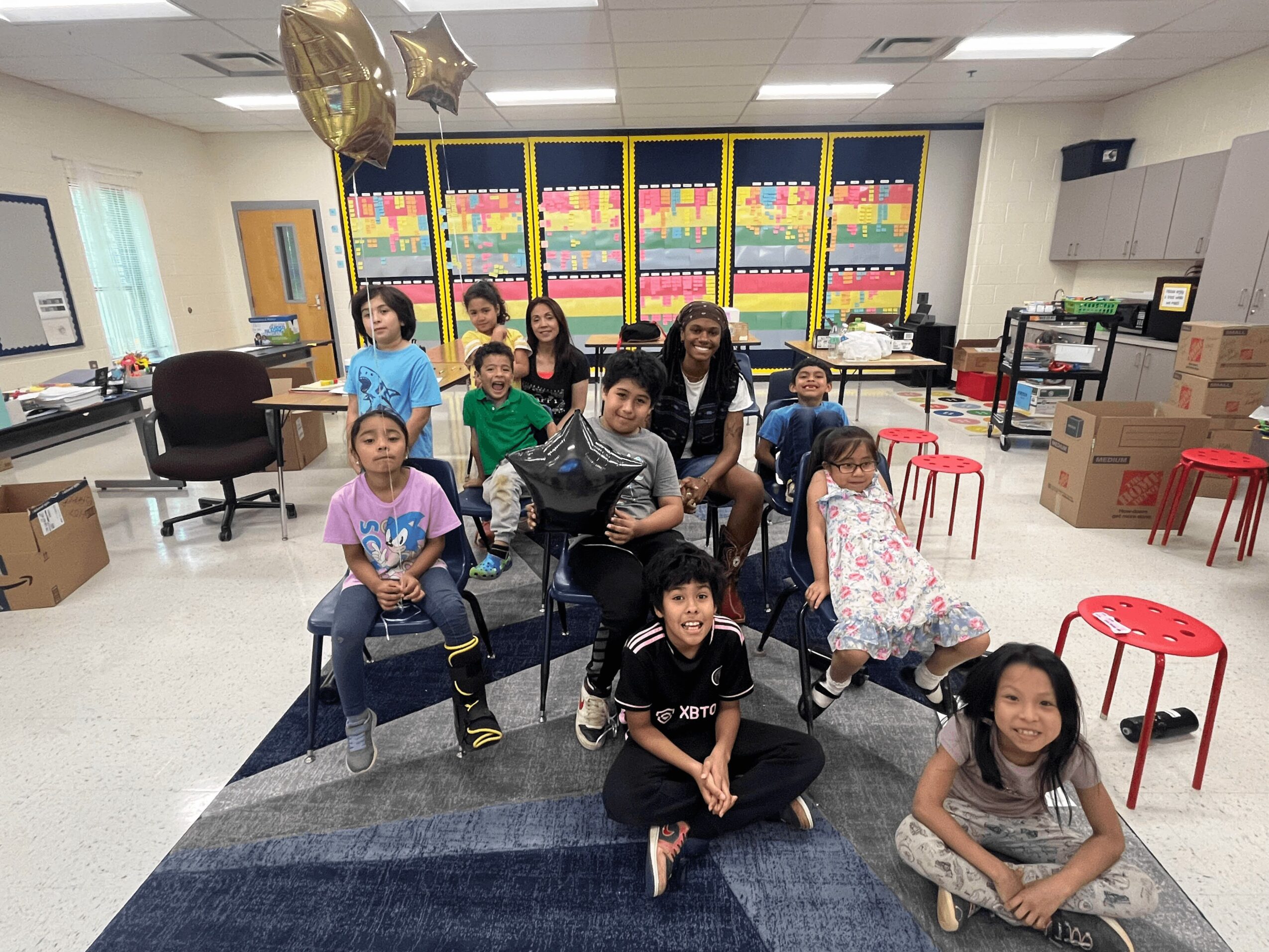
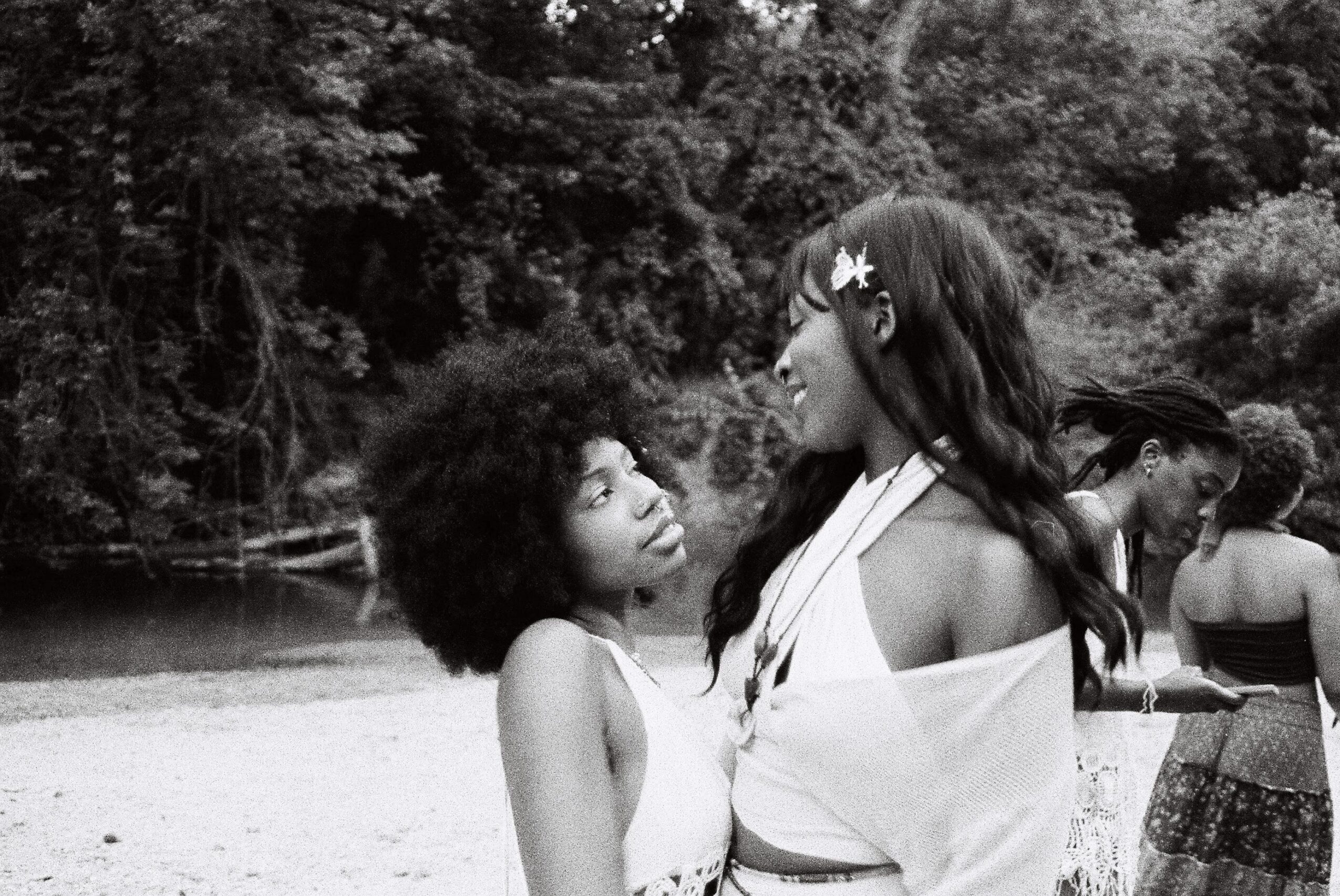
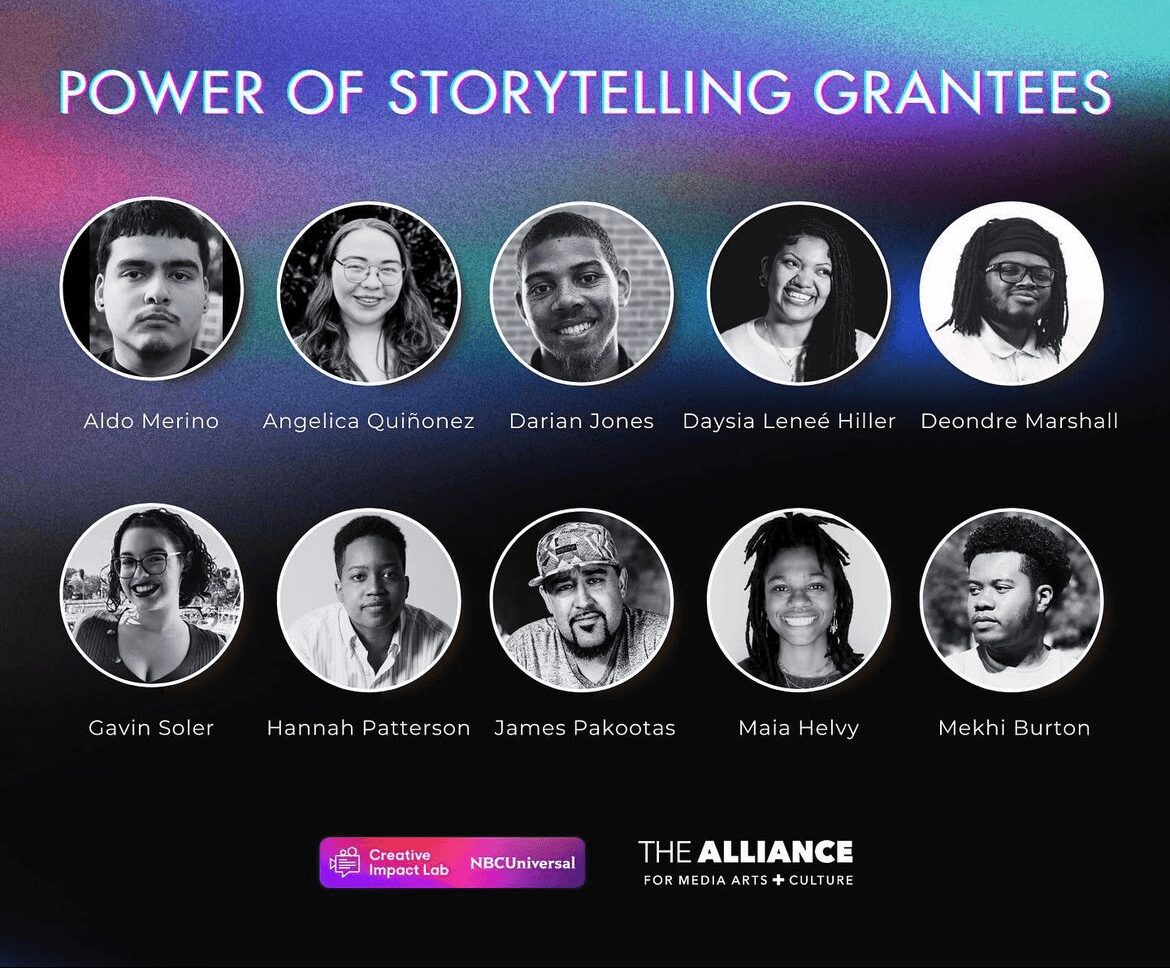
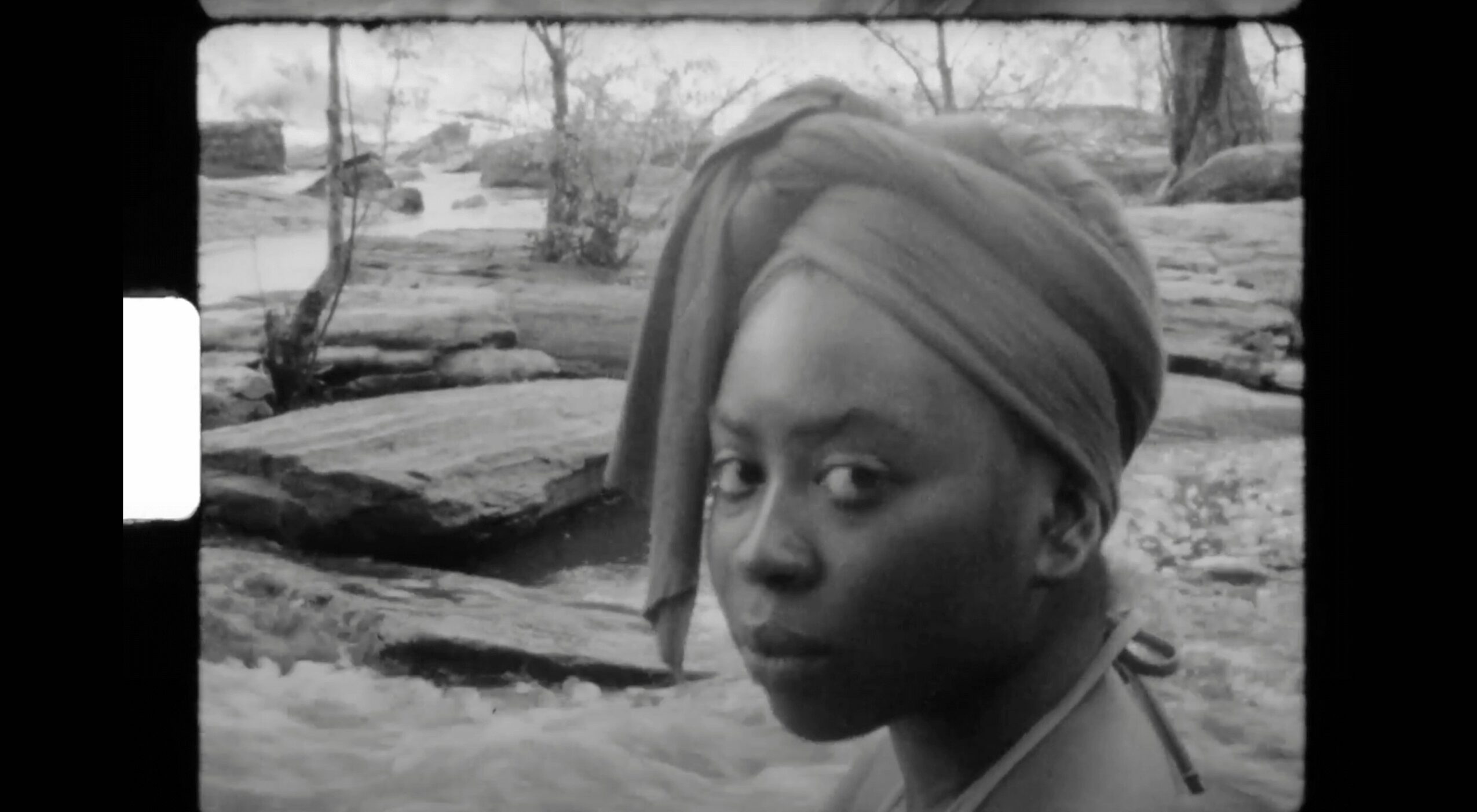
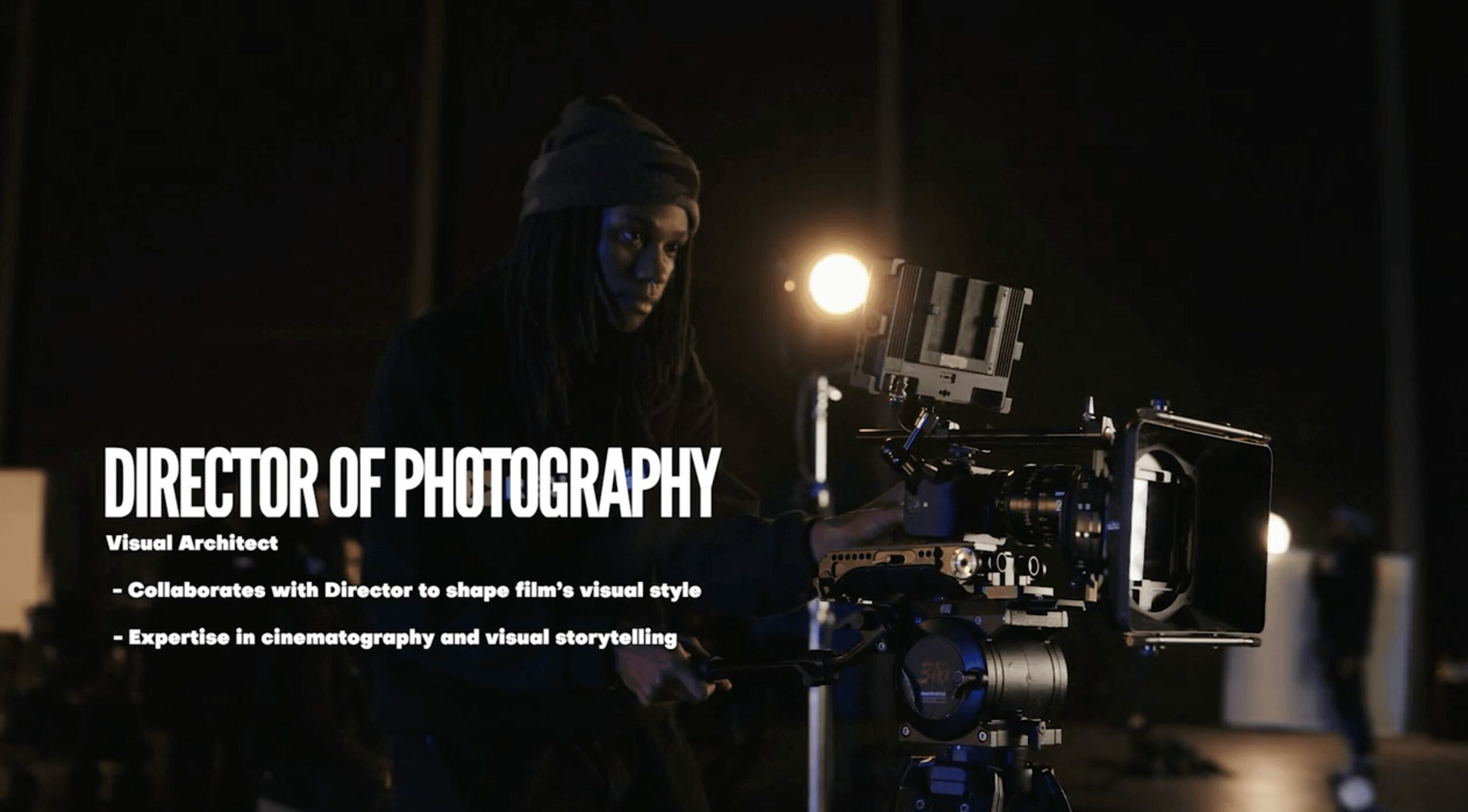
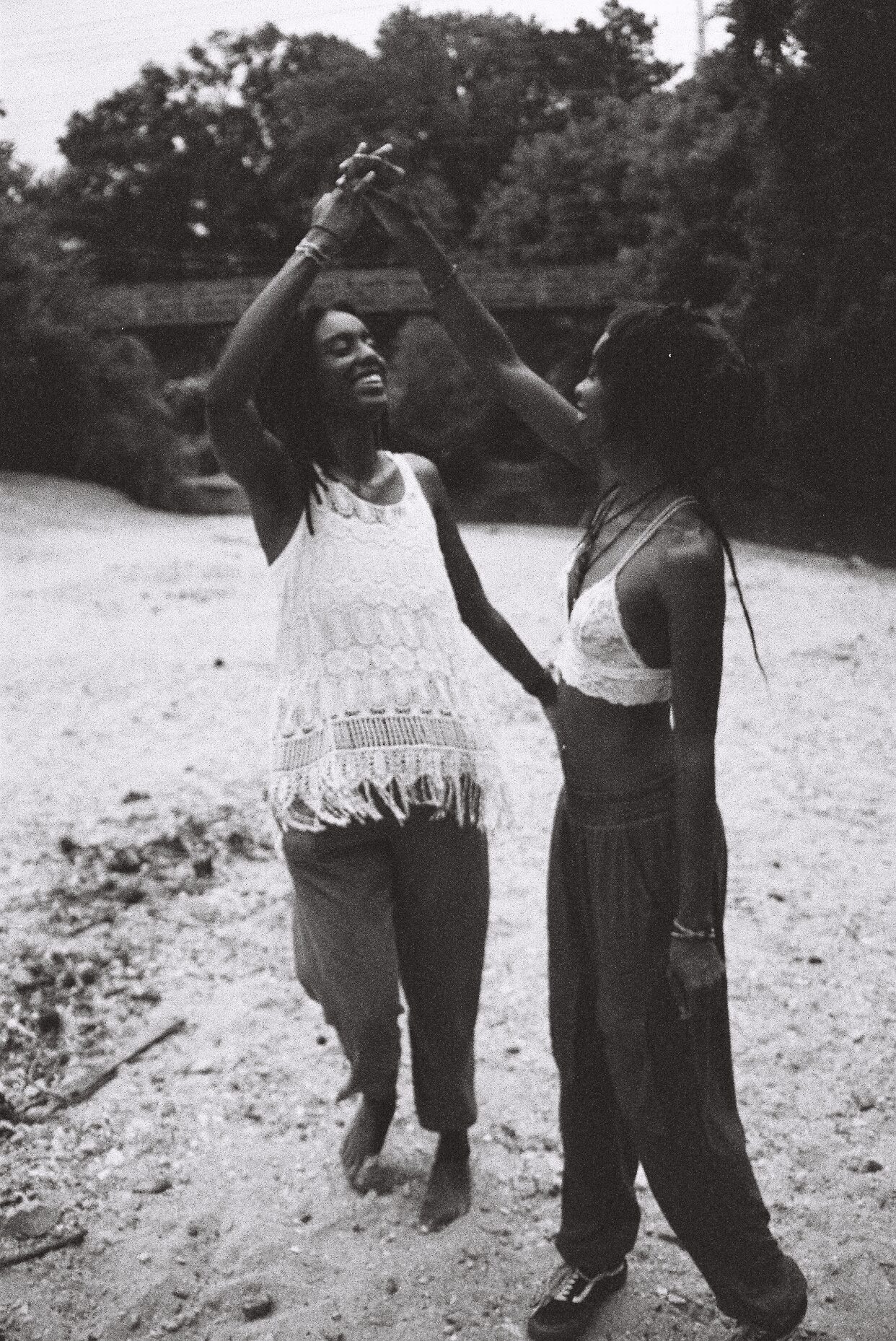
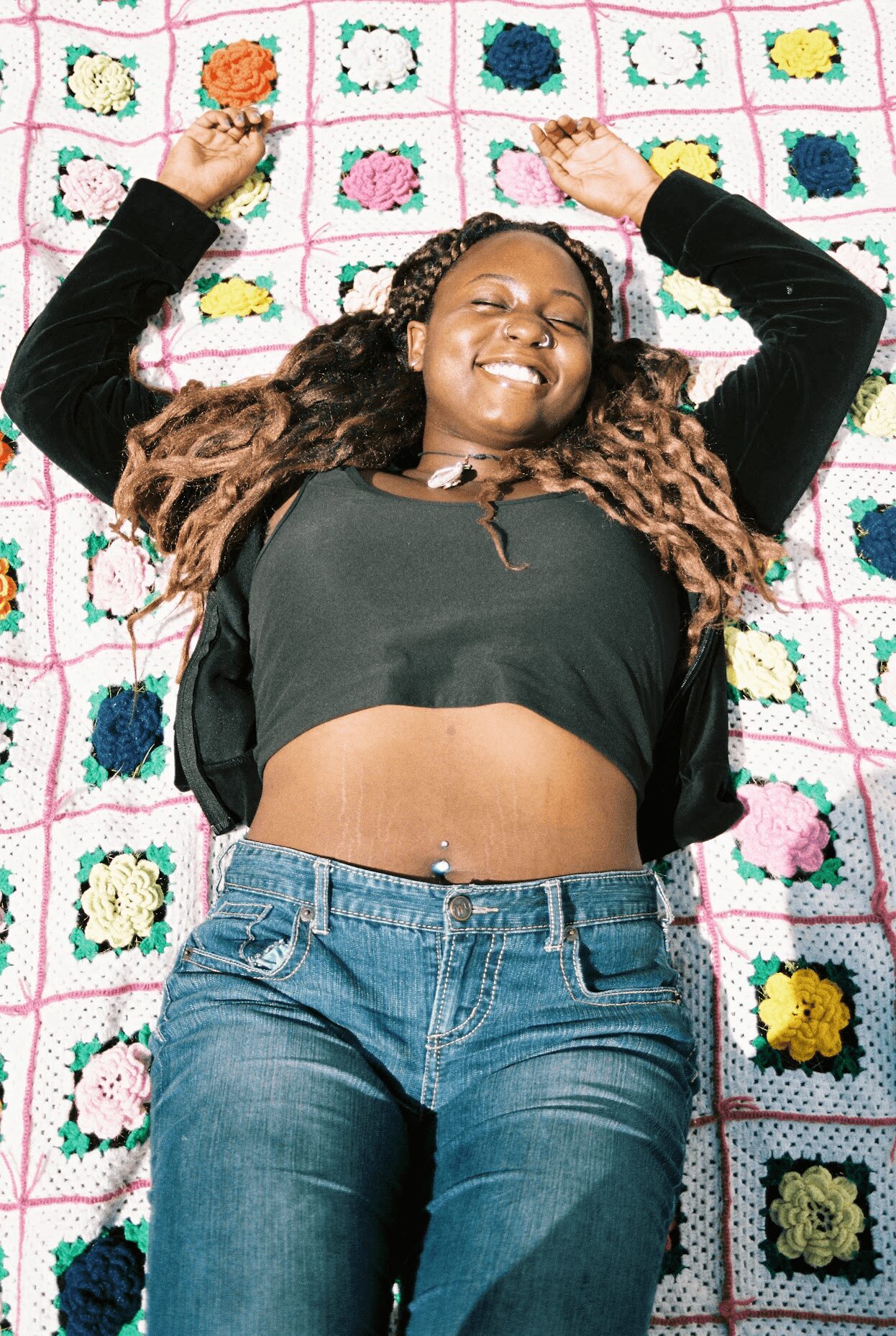
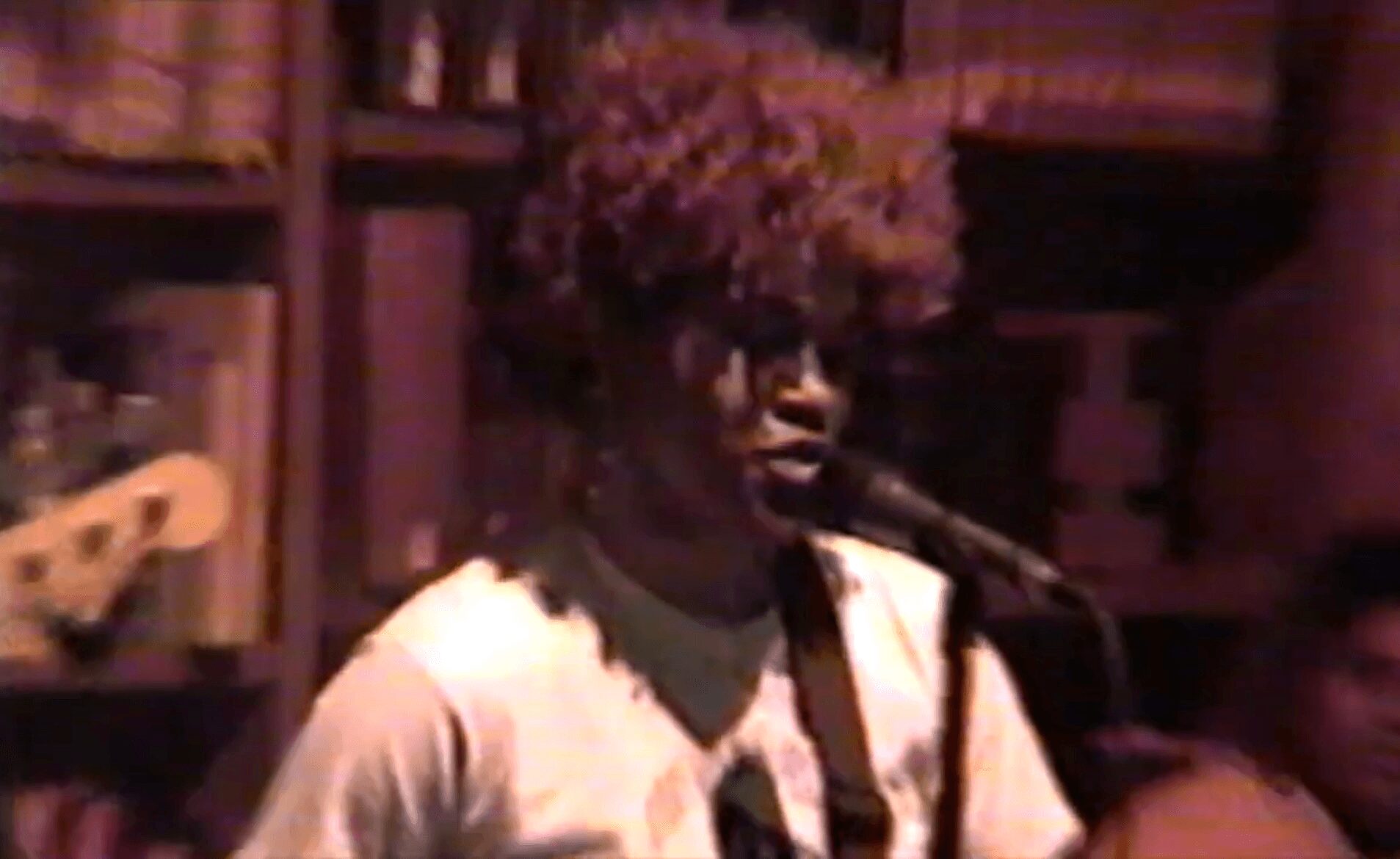
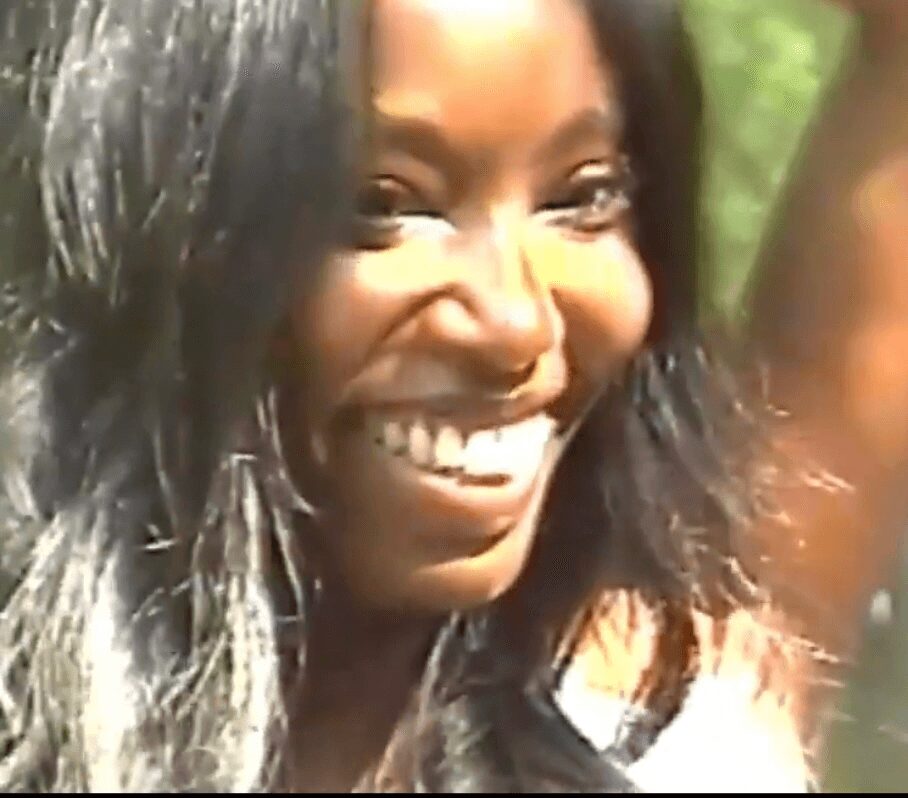
Image Credits
The picture with students and Maia from the YELLS/Re:imagine after-school class.
The Two Black and White pictures of queer couples are featured in “The Kiss” Music Video taken by Maia.
Picture on Picnic Blanket of Adhis Opinya for photojournalism series.
The Black & White screen grab is from a Super 8 video “Absolve at the Water” featuring Tia Ealy. The screen grab of Mia Gant singing and playing the guitar is from a short documentary titled “Girl in Jeans”.
The screen grab of the woman smiling is Ashley Hutton from the “Dreams of Movement”.
The screen grab of Maia working on a camera is from the Re:imagine Warner Brother’s Video “Hidden Paths”.

